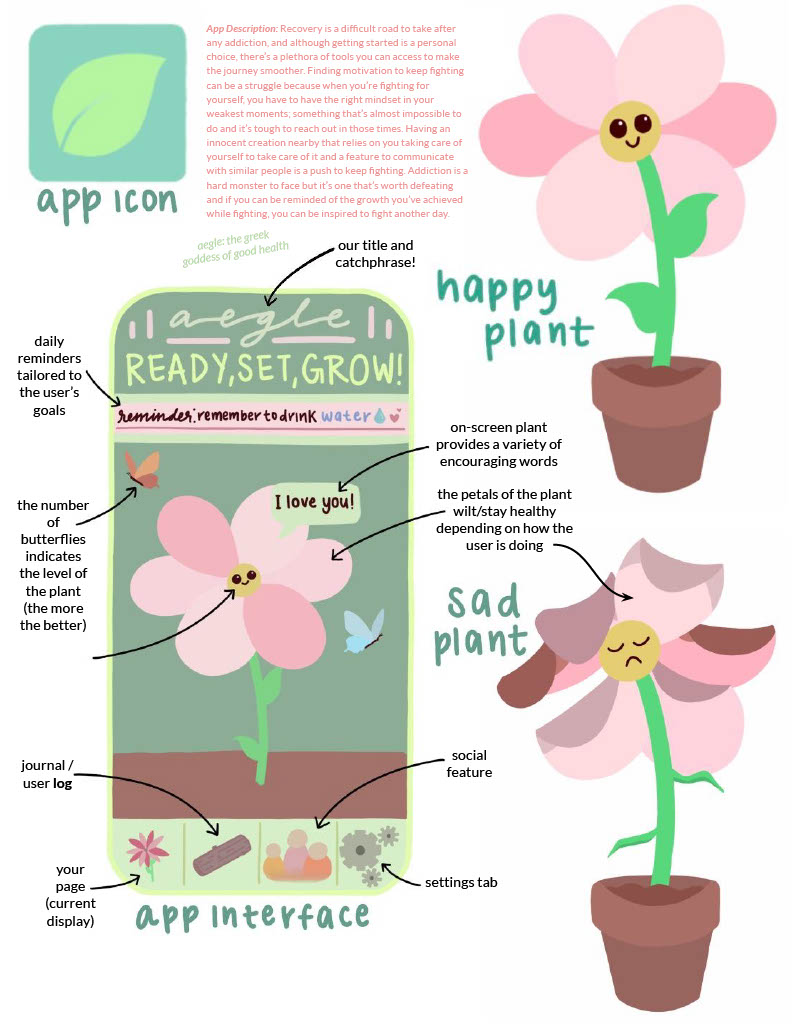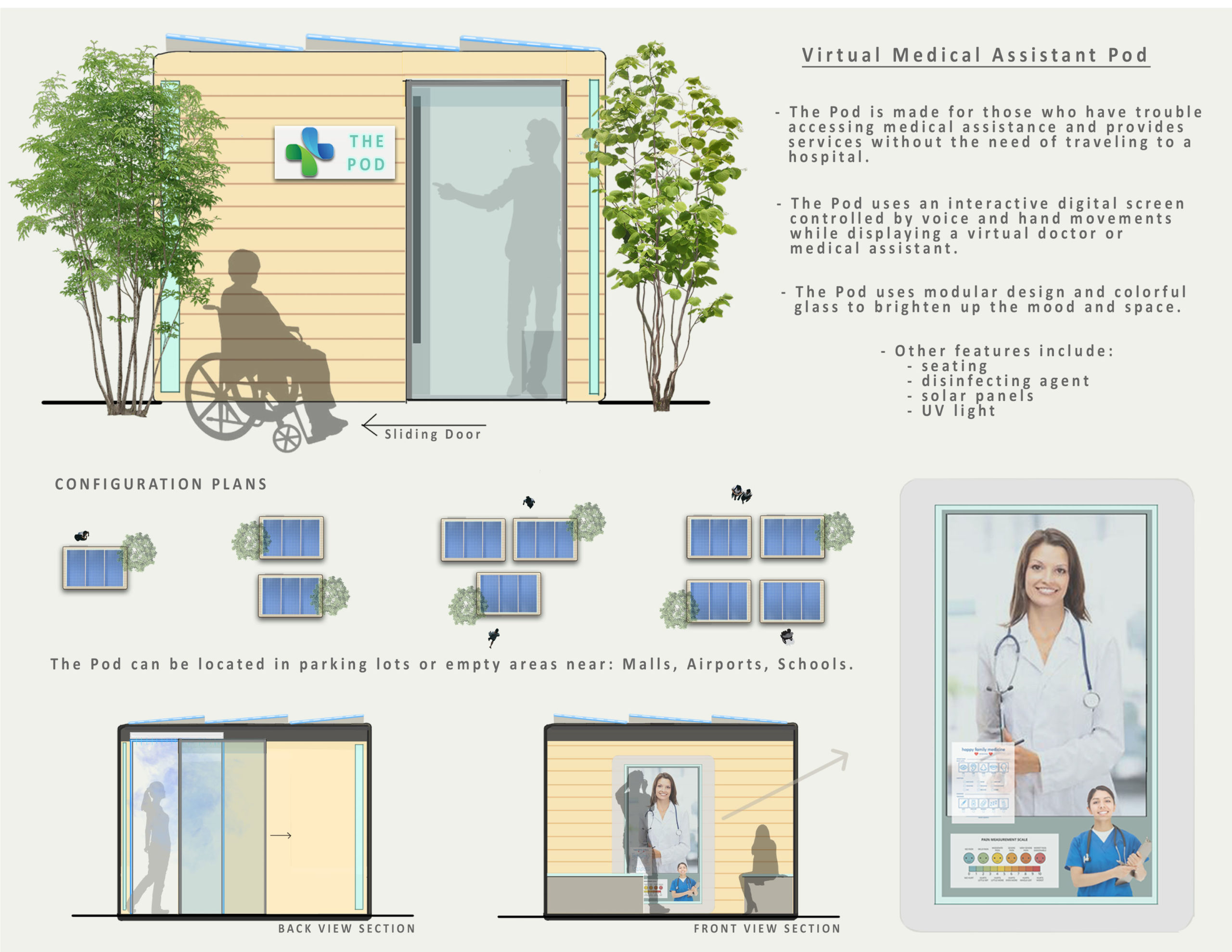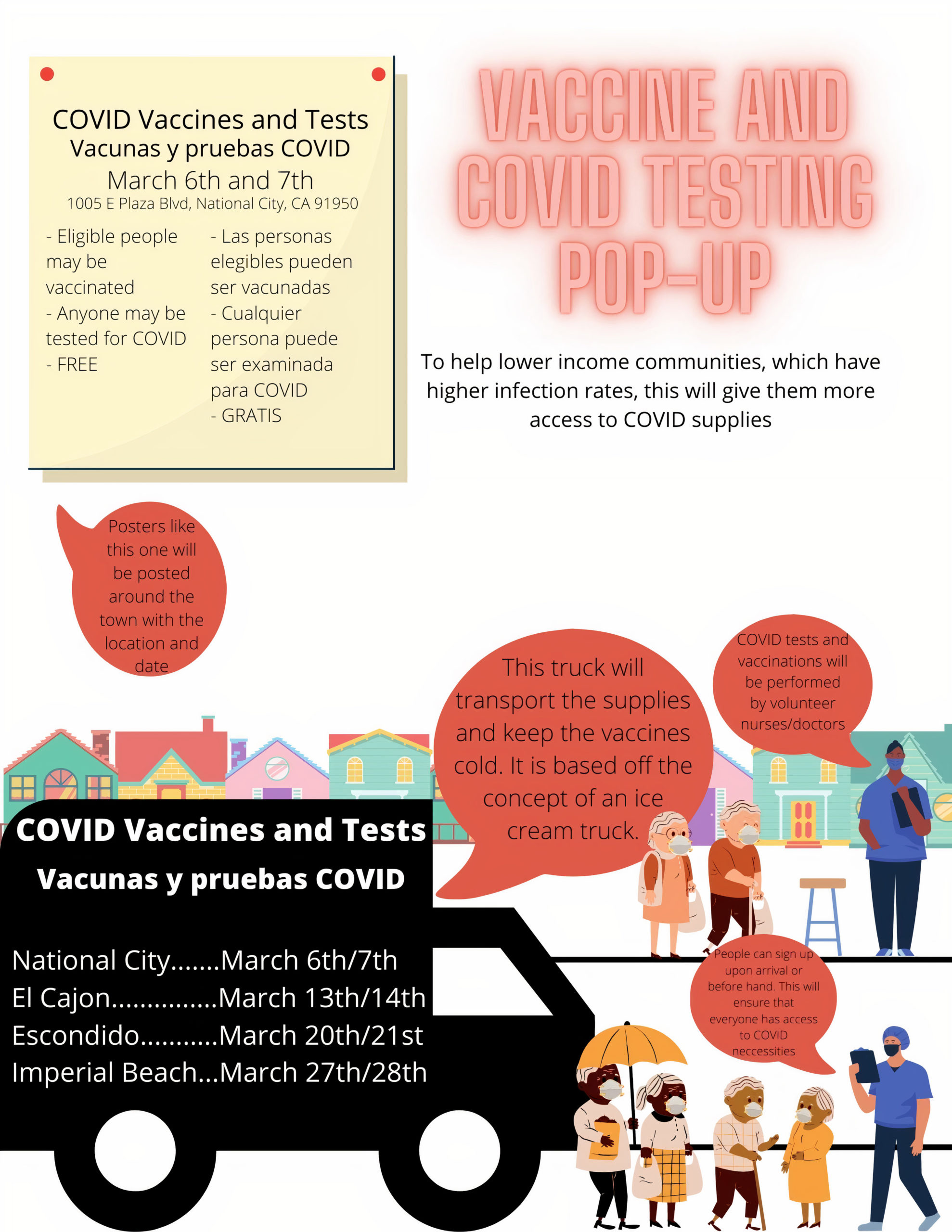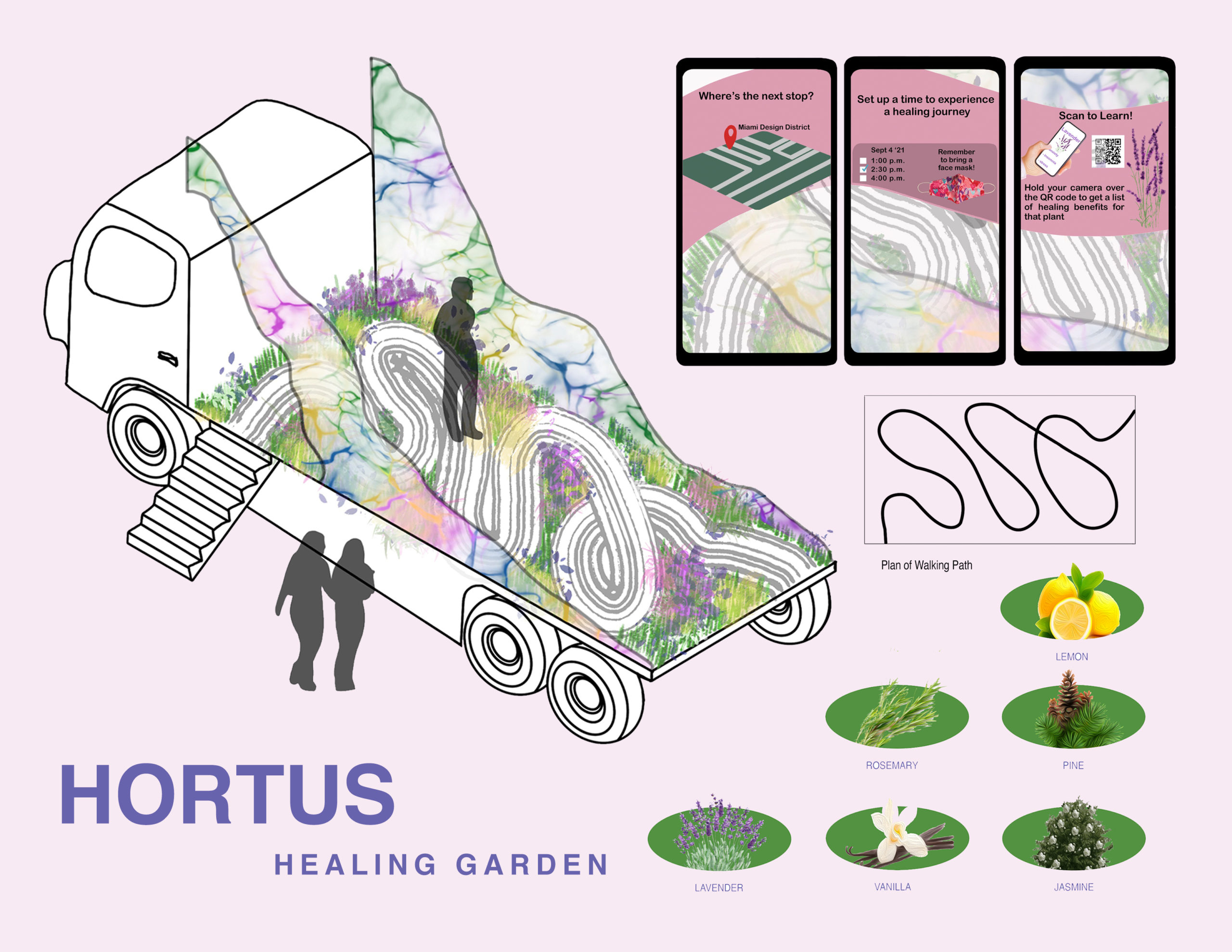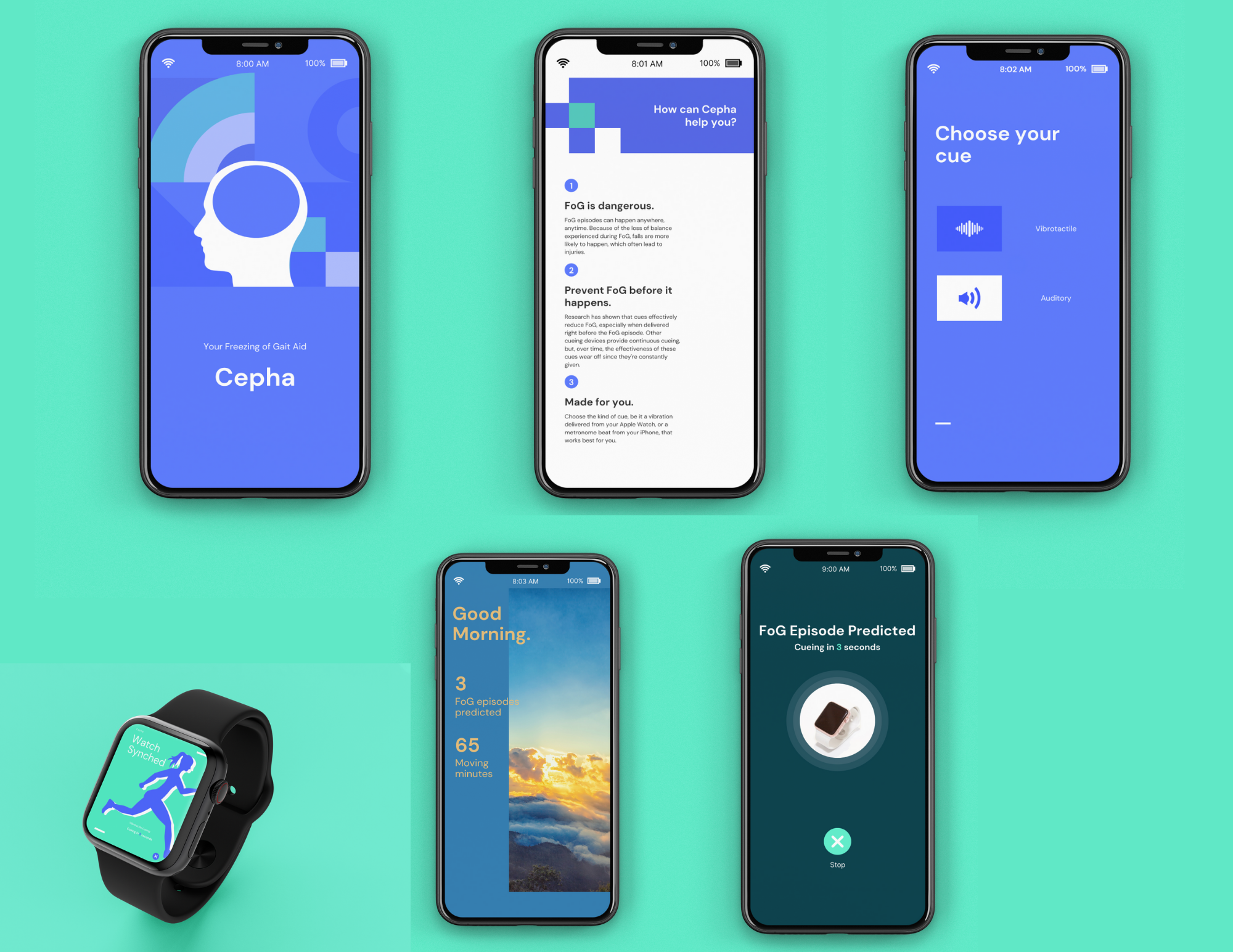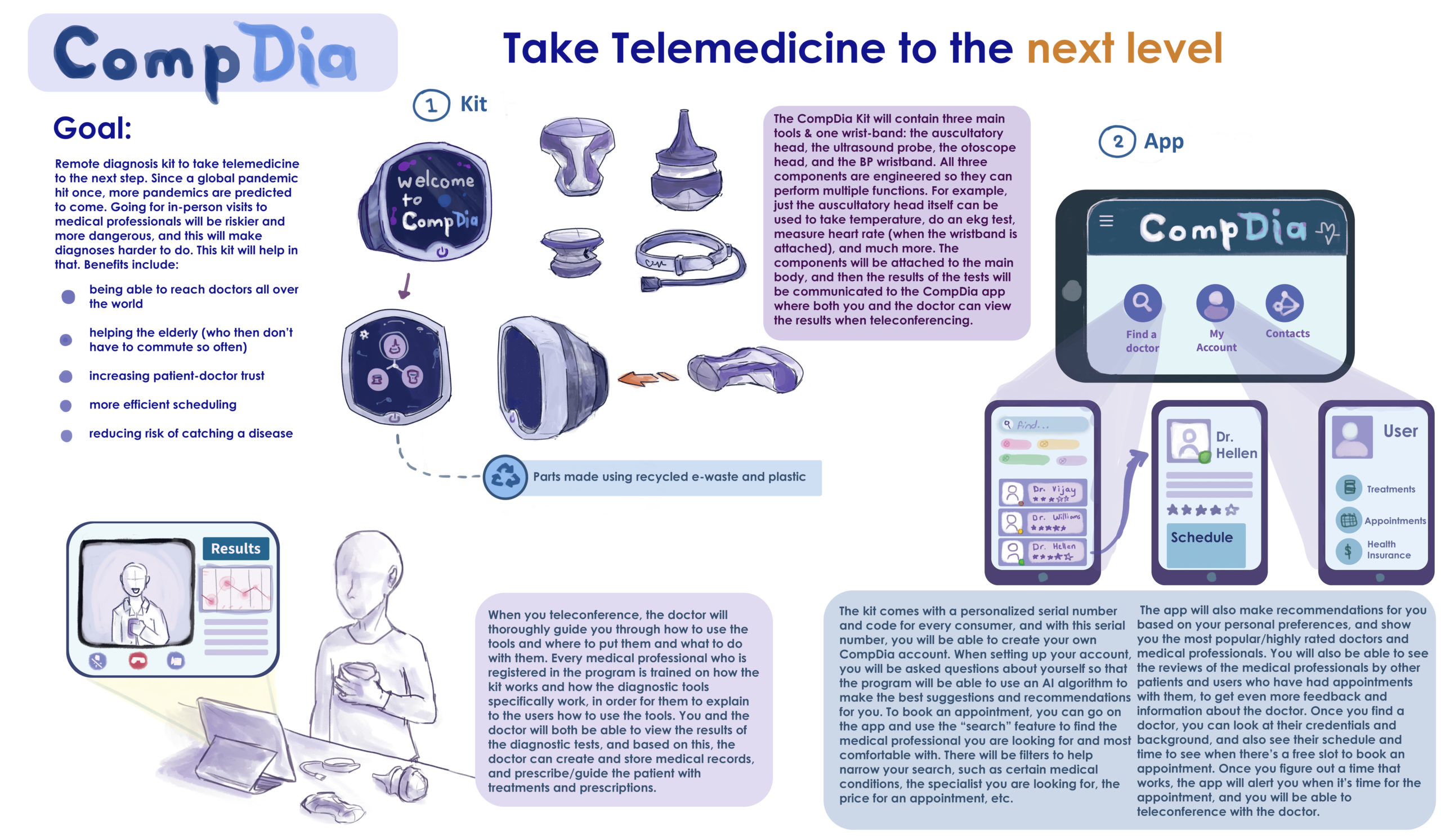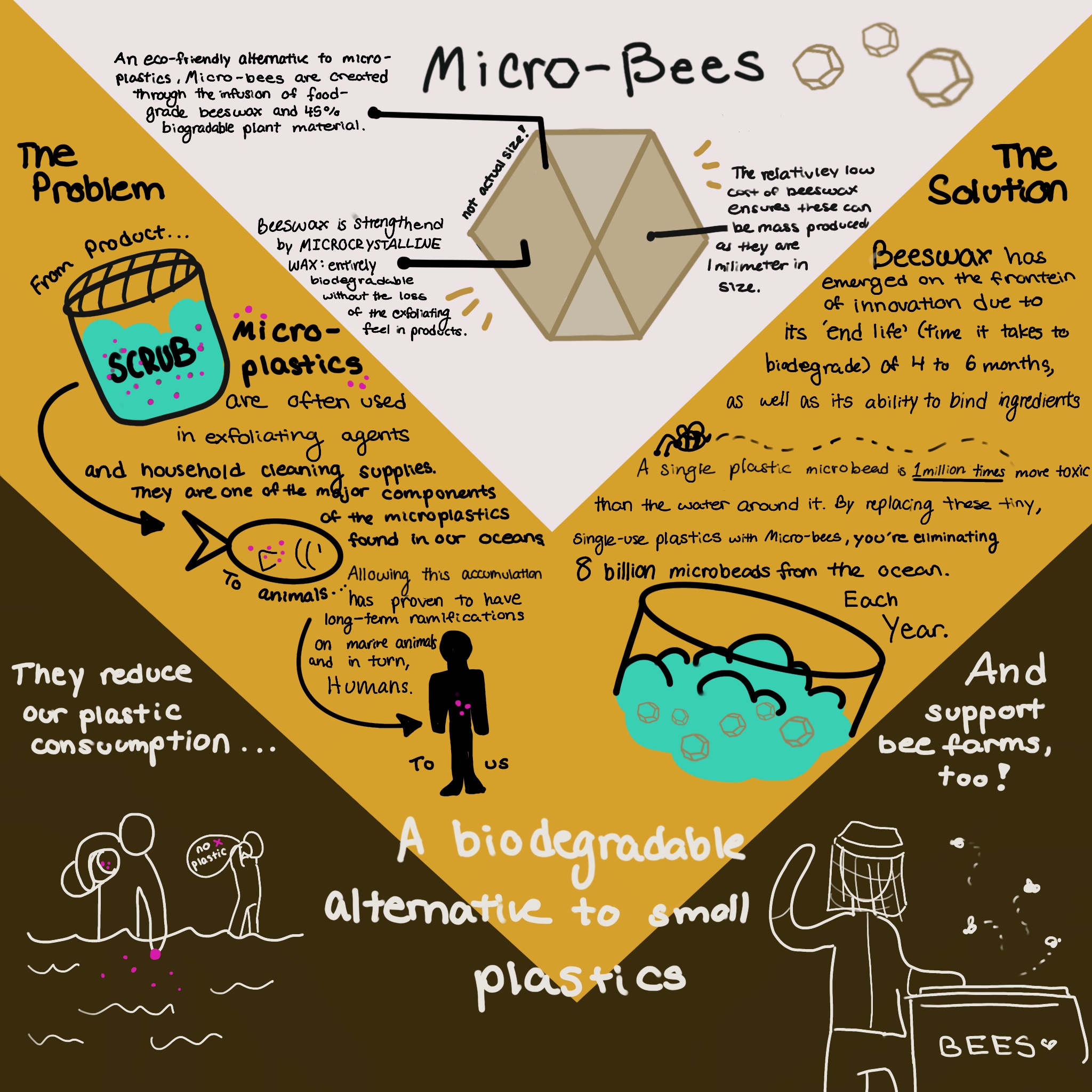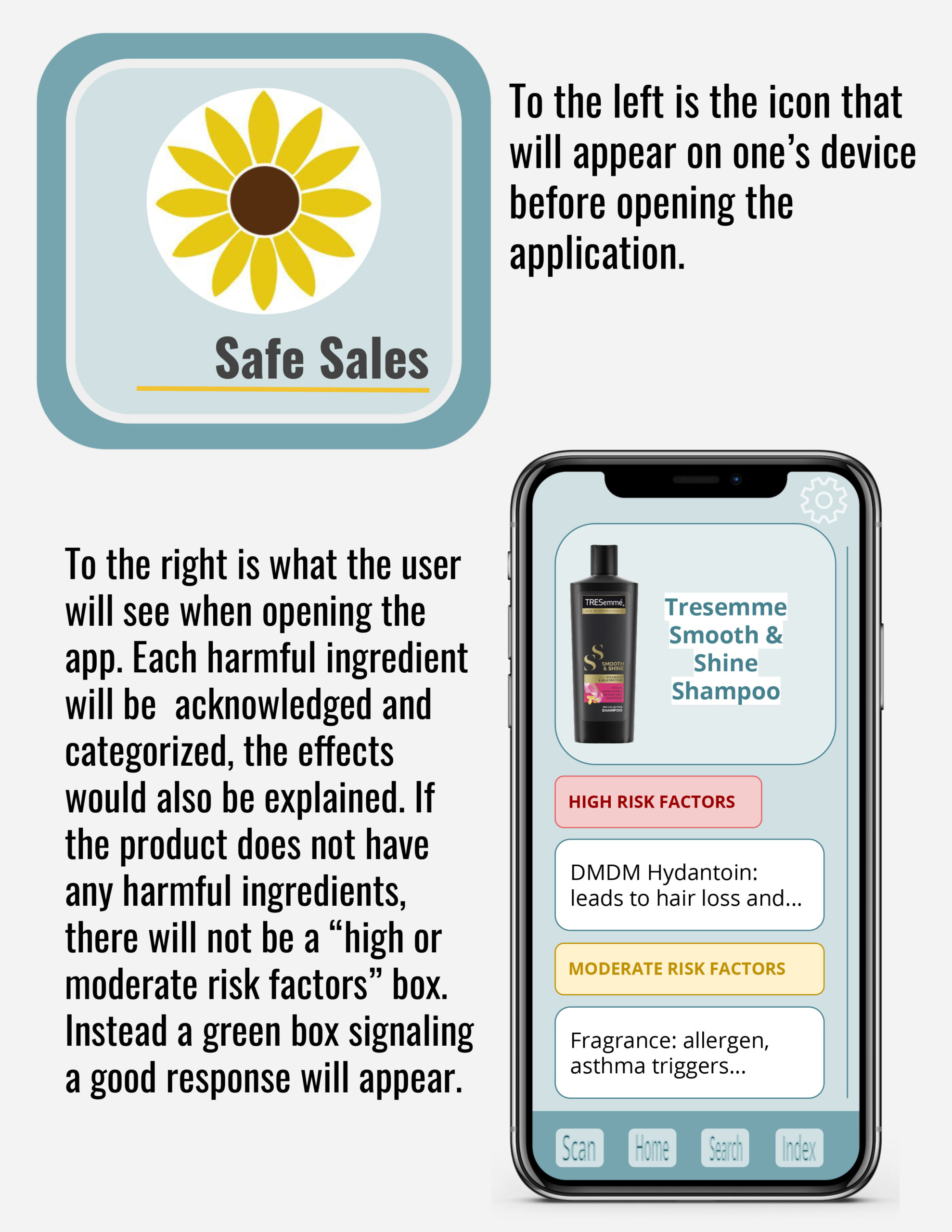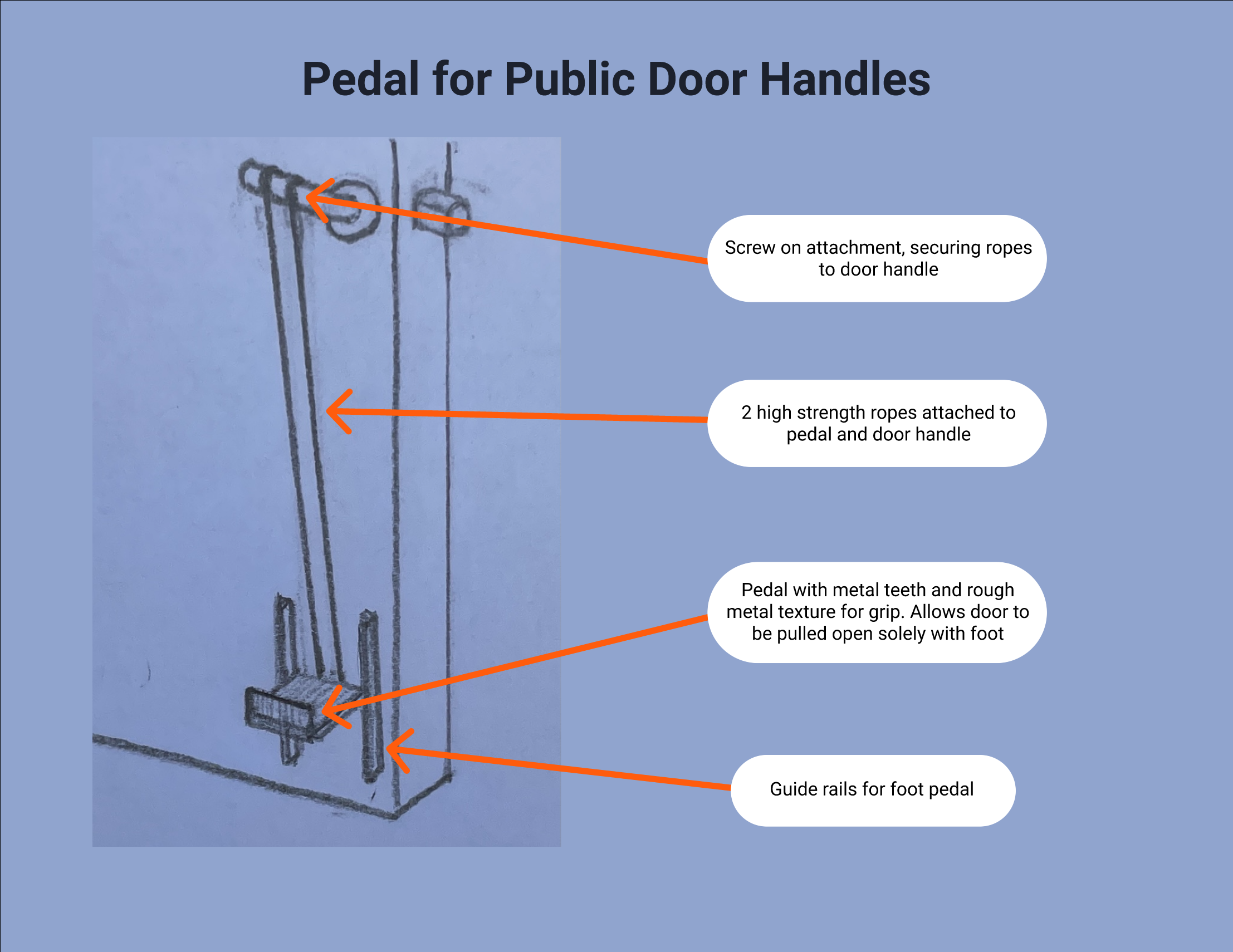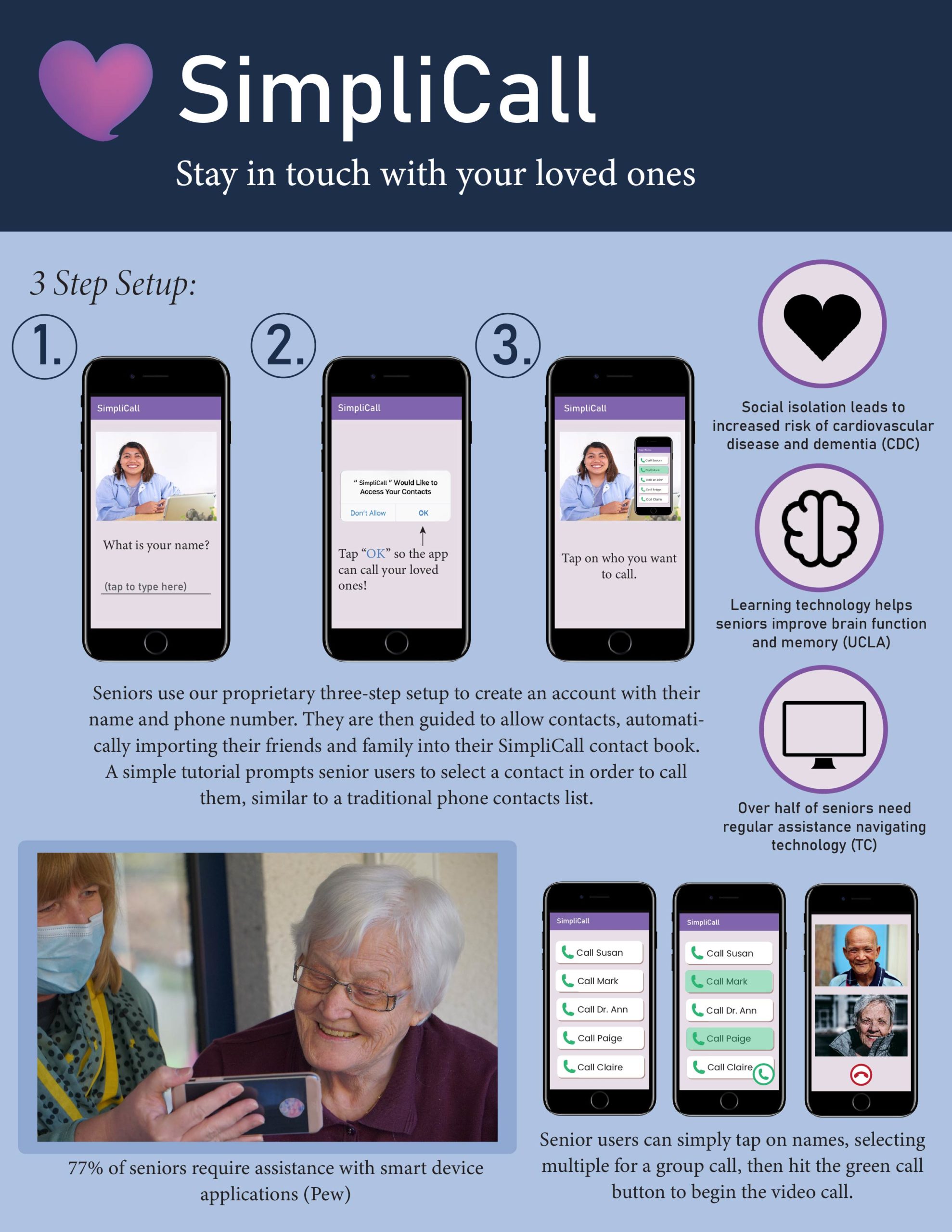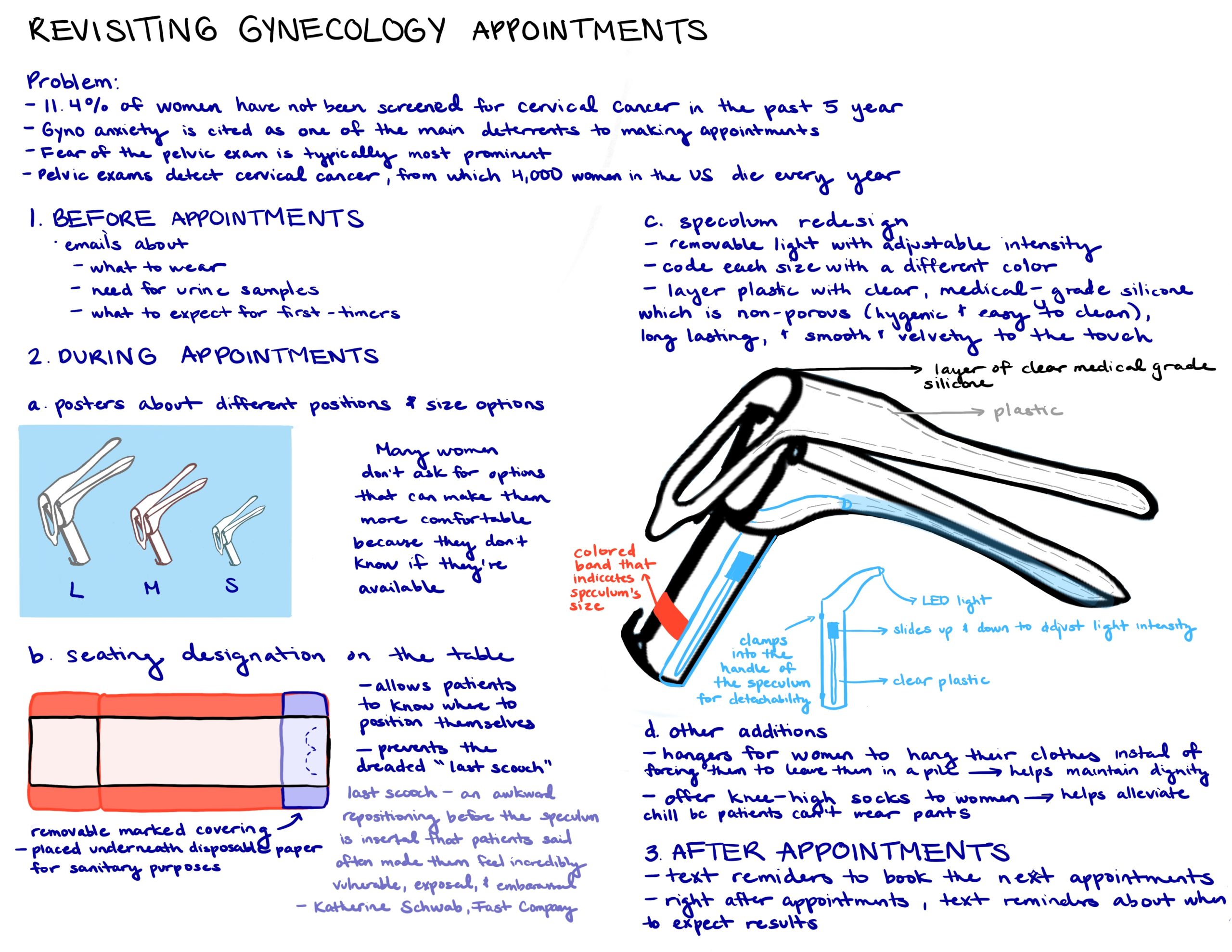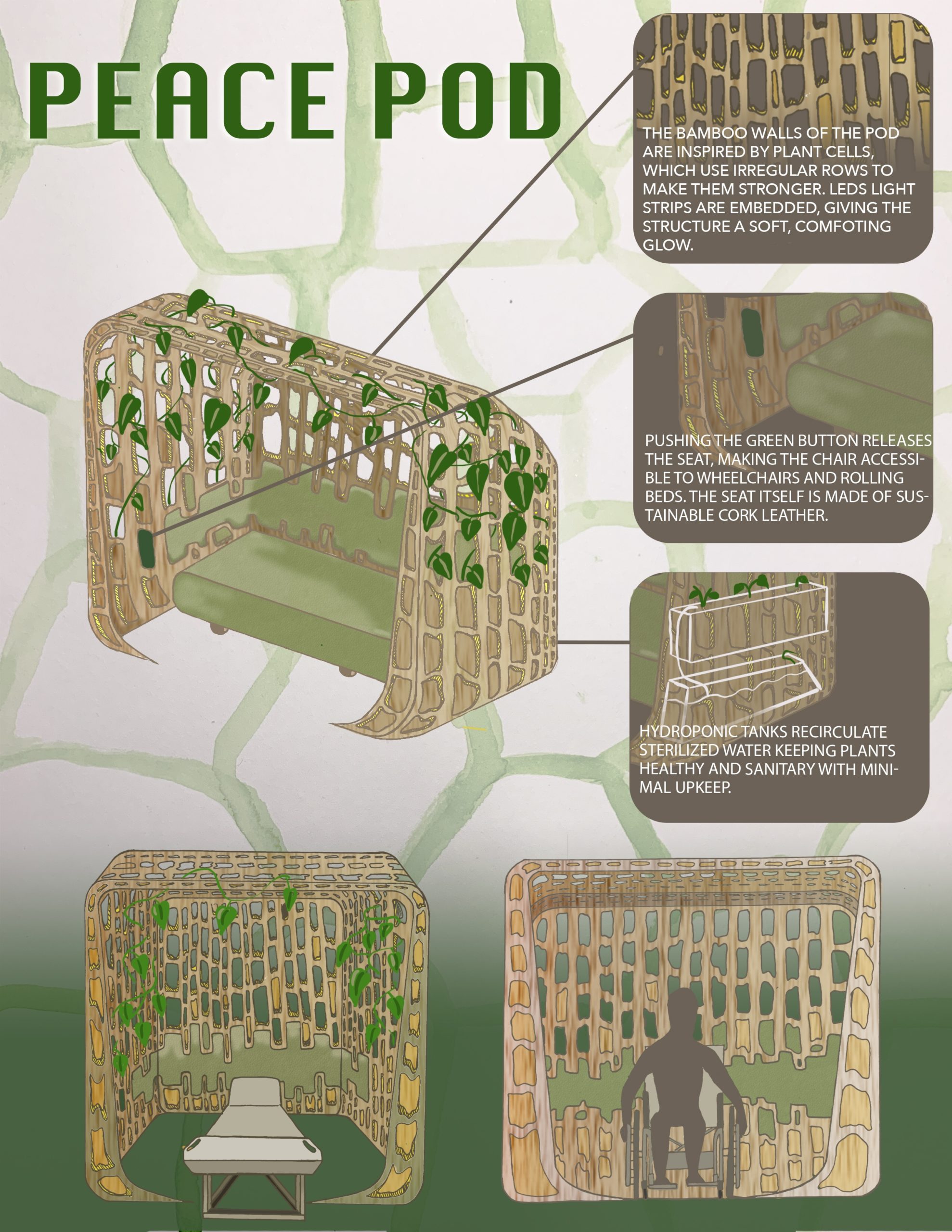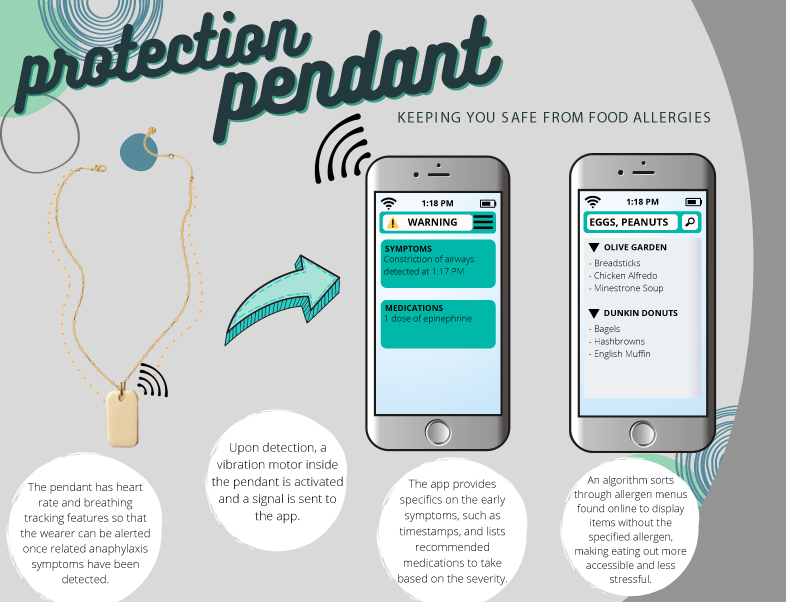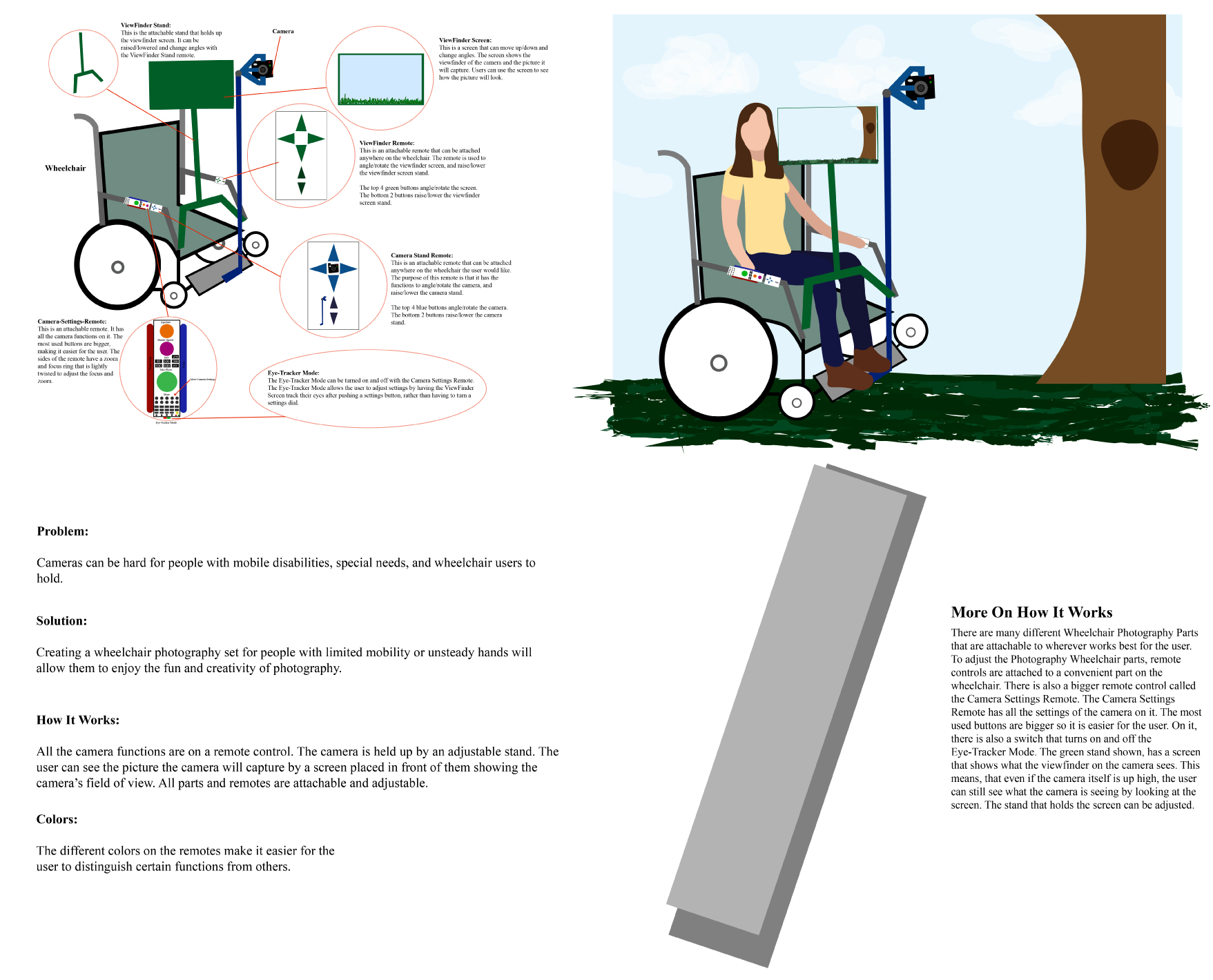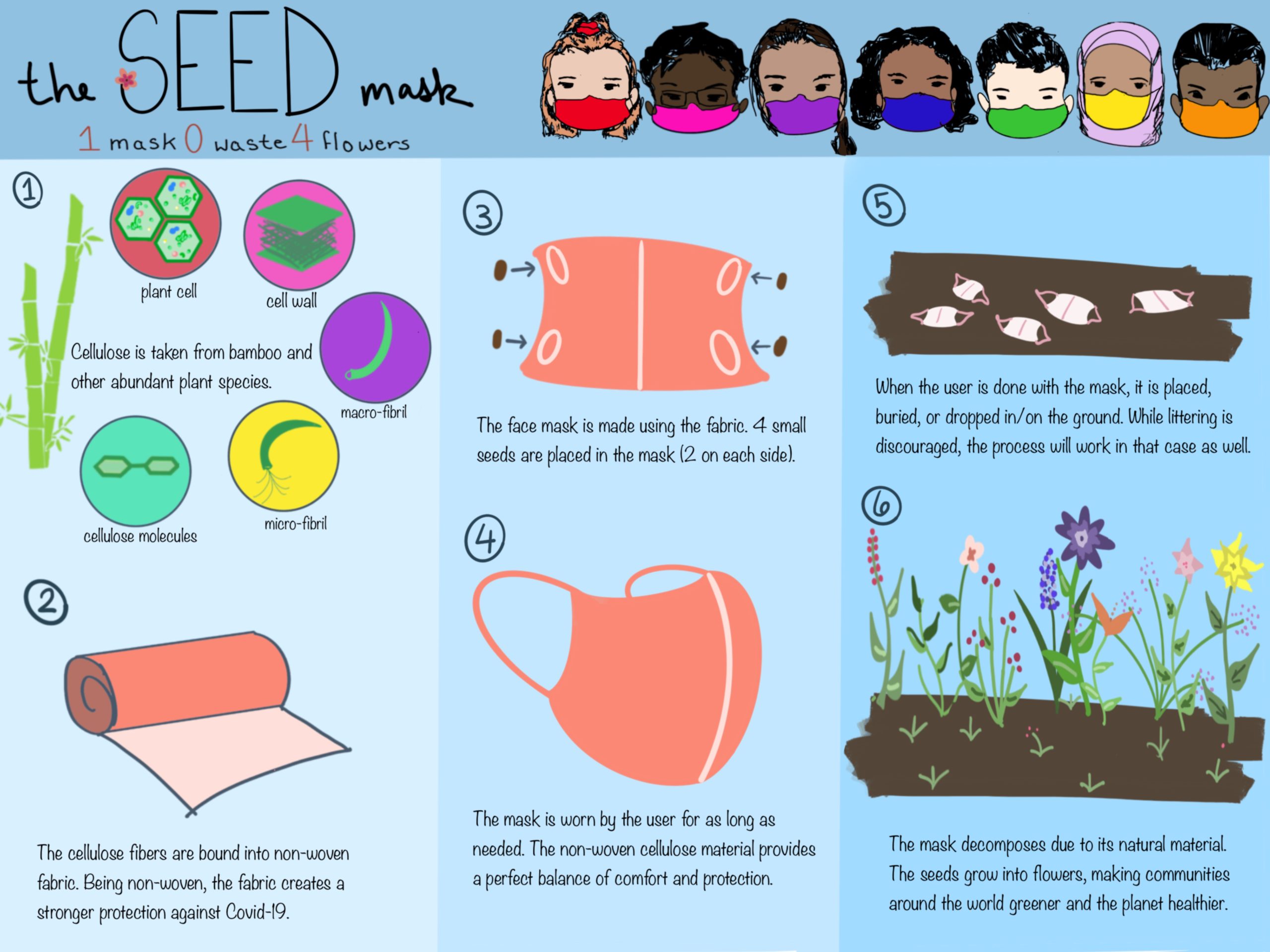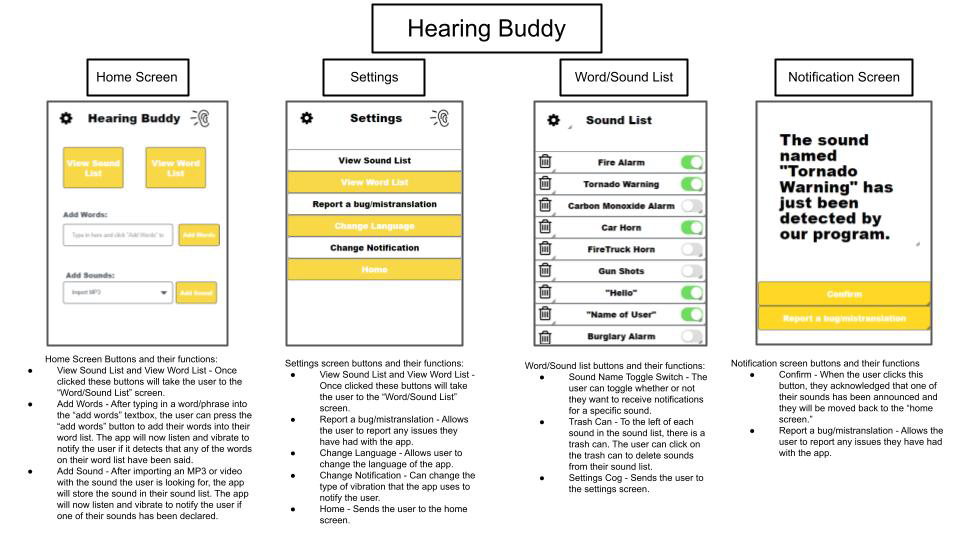Announcing the Winners!
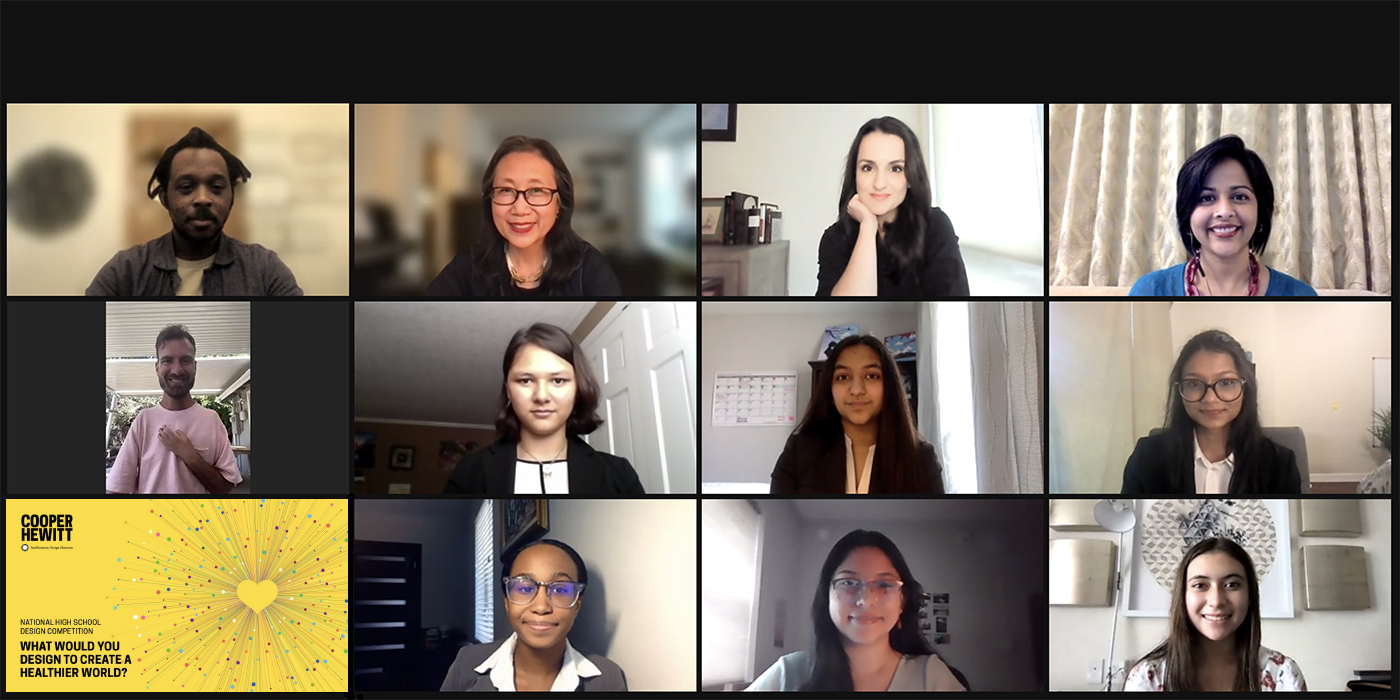
Announcing the 2021 winners: Aditi Jha, Nidhi Malpani, and Yasmina Muradova
Finalists Paulina Caceres, Alexis Nicoleau, Allison Casey, Aditi Jha, Nidhi Malpani, and Yasmina Muradova attended a virtual Judging Weekend on June 12–13 where they learned more about design and presented their design ideas to an esteemed panel of judges: Curry Hackett, Founding Principal, Wayside Studio; Joshua A. Halstead, educator, author, designer, healer; Morgan Hutchinson, MD, Thomas Jefferson University Health Design Lab; Somi Kim, Senior Director, Healthcare Solutions, J&J Design, Johnson & Johnson; and Ruki Neuhold-Ravikumar, Interim Director, Cooper Hewitt, Smithsonian Design Museum.
Congratulations to rising seniors Aditi Jha (duPont Manual High School, Louisville, KY), Nidhi Malpani (Westwood High School, Austin, TX), and Yasmina Muradova (The Gatton Academy, Bowling Green, KY) for being named the winners of the 2021 National High School Design Competition. Their project, Aegle, plays on people’s empathy and natural inclination to help others by encouraging self-care through a physical-mechanical plant and an app that responds to an individual’s well-being. Watch the presentations of the finalists and explore the projects of all the finalists and honorable mention recipients below.
The National High School Design Competition is made possible with support from Shelby and Frederick Gans.
MEET THE 2021 FINALISTS AND HONORABLE MENTIONS!
After reviewing 815 astounding entries from across the country, Cooper Hewitt is pleased to announce the finalists and honorable mentions for the 2021 National High School Design Competition, which challenged students to design a healthier world for all. The finalists will move on to the next stage of the competition full of inspiring mentoring activities including a virtual Mentor Weekend with lead mentor Rachel Smith, designer and founder of Design to Combat COVID-19, and Judging Weekend, where they’ll present their final designs to a panel of judges. Congratulations to the finalists and honorable mentions!
Aditi Jha, age 16, Nidhi Malpani, age 16, and Yasmina Muradova, age 16
duPont Manual High School, Louisville, KY; Westwood High School, Austin, TX; and The Gatton Academy, Bowling Green, KY
Many people experience addiction in their lives—drugs, alcohol, self-harm, the Internet, etc. As a common experience among all walks of life, it has touched our lives several times. We focused on the topic of addiction and to help people recover. Our design has two parts: a physical-mechanical plant and an app. The plant acts as a motivator for recovery and growth while the app connects people socially and tracks progress. The two are connected by a code and a person’s progress affects the plant’s appearance. The user has the app on their device and may enter progress into a log, which would then reflect the plant’s appearance. This would motivate a person who can’t always take care of themselves to do so for something that’s constantly in need of support, which is an important aspect of health.
Paulina Caceres, age 17, and Alexis Nicoleau, age 17
Design and Architecture Senior High, Miami, FL
Teacher: Eric Hankin
Covid-19 has affected the way people move from one place to another. The Pod is made for those who have trouble accessing medical assistance. It provides medical services without the need to travel to a hospital and features a touchless system that lowers the risk of Covid-19 transmission. Located throughout the city, the Pod uses a modular design integrated with colorful glass to bring joy to the space and brighten the mood. Inside, there is an interactive digital screen controlled by voice and hand movements that display virtual medical assistants. Other features include a sliding door, seating, disinfecting agent, and solar panels. This design creates a safe environment for anyone who doesn’t have access to medical services and will allow them to not only go out during the current pandemic, but anytime. The use of colorful glass brings joy to the space and brightens up the mood.
Allison Casey, age 14
La Jolla Country Day School, La Jolla, CA
People at highest risk for Covid-19 infection, aside from seniors, tend to live in low-income communities and have less access to Covid-19 resources than those in wealthier communities due to barriers such as language, technology, information, and transportation. This makes it difficult for some people who are eligible for the vaccine to actually get vaccinated. Mobile Covid-19 vaccine and testing centers will visit low-income communities daily, giving eligible people vaccines and free testing for anyone. Vaccines will be in a refrigerated truck that will ensure the necessary temperature. Walk-ups and scheduled appointments will be allowed to broaden everyone’s access to Covid-19 related supplies and information. This mobile center will make Covid-19 necessities more widely available and reduce the spread of Covid-19. It will be advertised online and in the neighborhood of the mobile center to increase visibility. Everything will be multi-lingual to reduce the language barrier for access to information. This could also be utilized beyond the pandemic.
Sam Abuchaibe, age 18, and Samantha Azcuy-Batet, age 18
Design and Architecture Senior High, Miami, FL
Teacher: Eric Hankin
It’s difficult to live a healthy life, physically and mentally, without being connected to nature. Quarantining further isolates and distances people from nature, which leads to many health issues. Hortus, our mobile healing garden, transforms old semi-trucks into calming spaces that house stress-relieving plants that give off calming aromas and visuals, creating a space where people walk through to experience a journey of healing through nature. Hortus travels from city to city, stops in areas lacking nature, and welcomes people in. Covid-19 has impacted our physical health and it has also taken a toll on our mental health. Our design provides a solution to this issue, addressing the importance of nature and its positive impact on our health. As people experience this space, they will feel refreshed and clear-minded.
Nitya Ayyagari, age 17
Amador Valley High School, Pleasanton, CA
Parkinson’s disease is the leading cause of disability worldwide. I observed the debilitating symptoms that come with the disease while volunteering at my local memory care center, namely Freezing of Gait (FoG), a condition that occurs when patients with Parkinson’s have trouble balancing that may lead to falls and injuries. Cepha is a real-time cueing aid for people with FoG. The app uses a machine learning algorithm that predicts FoG about five seconds before it happens with over 90% accuracy. People can personalize their cue, choosing auditory (metronome beat) or vibrotactile (vibration on Apple Watch). Research shows cueing drastically reduces FoG. FoG leads to injuries and fall-related illnesses in 70% of patients. There is no other real-time cueing device or app on the market. Cepha is unobtrusive and helps patients with Parkinson’s fit in, while assisting their families in managing the disease. Continuous cueing for FoG helps people get used to cueing.
Sarah Basil, age 16
Bergen County Academies, Hackensack, NJ
Teacher: Scott Lang
Modern telemedicine is used to reduce the risk of contracting infectious diseases, but the drawback is that the main diagnostic skills such as listening to the heart and lungs, are not possible, making it difficult to get an accurate and immediate diagnosis. This can negatively affect both patients and healthcare professionals. The CompDia program is a remote patient to doctor conferencing tool for accurate at-home diagnosis. The device has a main body, three attachable heads that serve multiple functions, and a blood pressure monitor wristband. Through the app, patients can connect with and find doctors all over the world, and view results in real-time. Through CompDia, not only will scheduling be easier, but it also reduces the risk of contracting a disease, reduces the waiting time during visits, and reduces difficulty for elderly people to arrange an appointment. Patients will also be able to feel an interpersonal connection with their doctor.
Katherine Bell, age 16
Phillips Academy Andover, Andover, MA
Many cosmetic, skincare, and cleaning products contain scrubbing particles called microbeads, which are small plastic fragments ranging in size from roughly five micrometers to one millimeter. They accumulate in the oceans in the form of microplastic, endangering both marine life and humans as it enters our diets. My product, Micro-Bees, are small hexagonal beads comprised of beeswax and microcrystalline wax, two entirely biodegradable products that when combined, produce a material with a similar hardness to plastic. They are added modern products that rely on hard bits of material either for bulk or exfoliation. Our design aims to eliminate single-use plastic from our oceans by providing an environmentally sustainable alternative that supports local bee farms. Since bees are essential for pollinating crops, our product extends to all people who rely on healthy food. Manufacturers will use Micro-Bees in products to replace microbeads.
Paige Dalton, age 17, and Abigail Naidich, age 16
Academy of Allied Health and Science, Neptune City, NJ
Teacher: Melissa Pitman
Risk-inducing ingredients are in everyday essentials and cleaning items, a challenge for those exposed to harmful chemicals. In a class-action lawsuit with Tresemmé, we see the consequences of the hair loss chemical DMDM hydantoin being used. Other brands may also have harmful chemicals in their products. Safe Sales is an app that includes an index of ingredients that cause harm to consumers. Users may quickly scan a barcode or an ingredient list of an item, identify any harmful ingredients, and go into depth about each ingredient. A search bar option would also be included. This creates a healthier world because it makes everyone aware of what is in their products and the effects of chemicals. Users will access the design for free through any app store.
Akaash Doshi, age 16
La Jolla Country Day School, La Jolla, CA
Teacher: Luna Kim
Door handles in public spaces receive high amounts of traffic, allowing for an easy spread of germs, including Covid-19, from person-to-person through indirect contact. Frequently, the only way to exit a bathroom is by directly touching and pulling the door handle—an unsanitary and frustrating task. I designed a cheap and easily installable solution. My solution is a pedal that can be stepped on to open the door. The user pushes down with their foot to trigger the mechanism and then pulls the pedal with their foot to pry open the door. People in public restrooms will no longer need to touch the door handle to exit. The pedal system will decrease the spread of germs by reducing contact, therefore reducing illness.
Brett Kim, age 18, Lena Luostarinen, age 17
Francis Parker School, San Diego, CA
Last year, 56% of seniors reported feeling isolated, more than double the percentage in 2018. The increase of digital socialization has led to added stress and frustration for seniors, causing less interaction. Isolated seniors face a greater than 50% risk for dementia, 32% risk of stroke, and 57% increase in emergency visits, according to the CDC. Founding a nonprofit that guides seniors with tech support helped us become familiar with the problems seniors face with current teleconferencing platforms. In our design of SimpliCall, we removed the barriers keeping seniors from using video conferencing platforms. We replaced difficult setups and complicated calling systems with easy-to-understand, single-tap solutions. SimpliCall’s easy setup allows seniors to set up accounts with just a phone number and name. The automatic contact import helps seniors quickly and easily find their friends without additional setup. Our one-tap video call system helps make video conferencing as easy as regular calls, helping to make face-to-face interactions more accessible.
Ariane Lee, age 17
Syosset High School, Syosset, NY
Gynecologist appointments are feared by many women. Having your genitals examined by anyone, even a doctor, leaves you feeling vulnerable, anxious, and exposed. Every year, eight million American women skip their pelvic exams that screen for cervical cancer. Gynecologists cite “gyno anxiety” as a significant contributing factor. Re-designing gynecologist appointments starts by ensuring patients know their options and what to expect through posters and emails. The re-designed speculum is made of plastic and clear silicone with a detachable light. The seat markings are removable and are dark enough to be visible underneath the disposable paper. The new speculum alleviates the coldness and clanking sounds feared by women and improve the physician’s visibility. Removable seat markings work to further prevent patient embarrassment from “the last scooch.” These designs are all intended to remedy the anxiety and other feelings that deter women from appointments.
Eleanor Lewis, age 16, and Lizmar Torres, age 16
Design and Architecture Senior High, Miami, FL
Teacher: Eric Hankin
Residents of hospitals and assisted living centers are confined to their rooms, with little exposure to nature. This issue has increased during the Covid-19 pandemic, as residents are under quarantine. Being distanced from nature is detrimental to mental and physical health because it lowers immune system response and serotonin levels. The welcoming curves of our Peace Pod imitate plant cell structures, the sunlight-simulating fixtures provide a calming glow, and the rolling seat is detachable from the pod using a button which accommodates wheelchairs and rolling beds. It utilizes hydroponic tanks, making it low maintenance, while providing users interaction with nature without leaving their room. This design uses bamboo and cork leather, which are sustainable and eco-friendly. These materials make the world a healthier place. It induces the restorative benefits of nature, as plants filter air, reduce stress (leading to faster recovery), improve mental and physical health, and create a peaceful environment by diffracting noise.
Smridhi Mahajan, age 16
Academy for Mathematics, Science, and Engineering, Rockaway, NJ
Whether it be at small gatherings or large events, my friends and I have suffered the effects of food allergies. Feeling left out during these times, combined with the potential of being in a life or death situation, makes living with a food allergy challenging and stressful. Protection Pendant is an anaphylaxis symptom detecting device that vibrates to alert its wearer to a low heart rate and constricted airway. A corresponding app provides details on the symptoms detected and helps the user make stress-free decisions that make them feel safer and more included while eating out. Through the symptom detection and customized menu features of Protection Pendant, 520 million people can stay healthier physically and mentally and lead less challenging lifestyles. This product also helps those unaware of their allergies, and by catering to a general audience, this wearable technology can be made easily accessible.
Amanda Pajak, age 15
Blackstone Valley Regional Vocational Technical High School, Upton, MA
Teacher: Adele Ellis
Cameras can be hard to use for people with limited mobility and people in wheelchairs. My design helps people more easily use and hold a camera so they can experience the fun and creativeness of photography with various photography parts that attach to a wheelchair. Attachable remote controls allow the user to adjust the camera settings and photography parts. The camera settings remote has all the camera settings on it, including an eye-tracker mode. The viewfinder stand has a screen on it that shows what the viewfinder on the camera sees. The Wheelchair Photography Set gives the user a hobby that they can feel proud of, which is important for having a positive and healthy mindset. In addition, users could see this as a job opportunity in photography.
Delaney Rice, age 17
High Tech High School, Secaucus, NJ
Teacher: Vanessa Medina
I identified the importance of face masks and the unfortunate harm they cause the environment. We all need to wear masks during Covid-19, but the traditional surgical mask is not recyclable or biodegradable. This is an issue for everyone because it adds to waste and the climate crisis. The Seed Mask is made of non-woven, cellulose-fiber material that is biodegradable. Seeds are inserted into the sides of the mask. When the user is finished, they can simply place the mask in soil. The mask will decompose, and the flowers will grow. We currently face many crises, and the Seed Mask addresses two of them—Covid-19 and climate change. This mask provides the protection needed while combating littering and waste. After use, the mask will decompose and create flowers, reducing pollution in communities across the globe and making the planet greener and healthier.
Michael Valadez-Barba, age 15
Granada Hills Charter High School, Granada Hills, CA
Teacher: Jackie Ying
A person who is deaf, hard of hearing, or has hearing loss may struggle to catch important announcements in public places such as fire alarms, airplane announcements, etc. These situations can be very stressful, frustrating, and even life-threatening. My design is an app that utilizes sound recognition technology that listens for announcements that the user may need. The user enters their phrase into the app and the app listens attentively to the surroundings and vibrates to notify the user if the key phrase has been announced. This design creates a healthier world for a person who is deaf, hard of hearing, or has hearing loss because it positively impacts their mental health by removing the frustration and stress of worrying about missing any announcements; whether the announcements are as minimal as listening to a message on an airplane or as crucial as a fire alarm.
